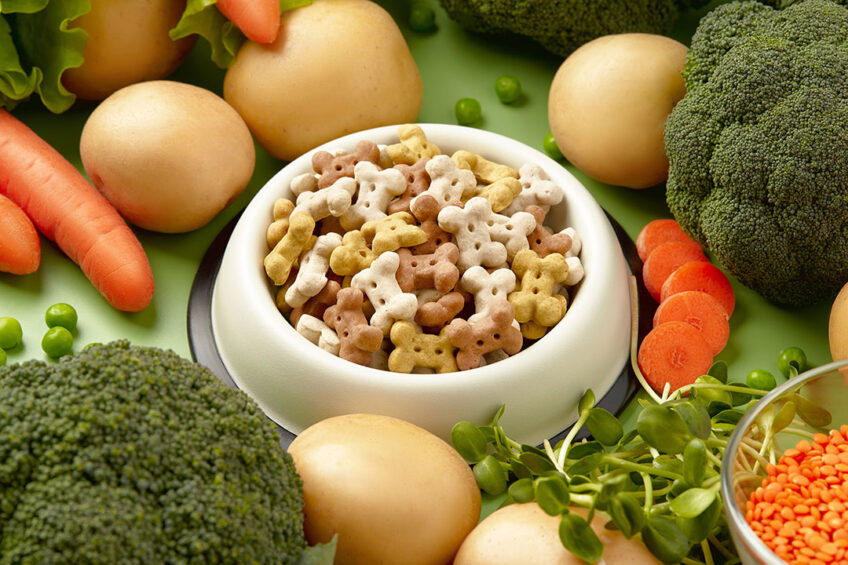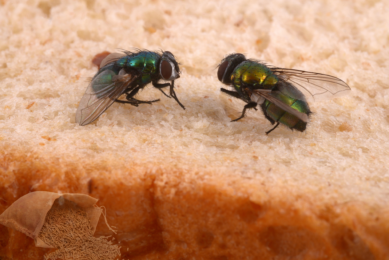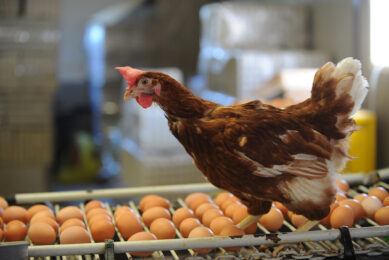BSF-fat shown to boost cats and dogs nutrition

Researchers found that including black soldier fly (BSF) fat in the diet of feline and canine species benefits their brain and intestinal health, and it also has antimicrobial properties.
Black soldier fly farming has increased at a rapid rate in recent years, and so too has the use of insects as feed. The production of black soldier fly (BSF) larvae has received much attention, as larvae efficiently convert by-products into valuable nutrients, protein and fat. BSF fat is also known to be highly digestible, making it a good candidate for inclusion in livestock and pet nutrition. A recent study reveals that BSF fat may offer even more benefits than once thought. The study, co-authored by Petgood lead vet and head of product development Dr Nicky Sluczanowski, found that including black soldier fly fat in feline and canine nutrition promotes brain and intestinal health, and has antimicrobial properties. In a recent interview, Dr Sluczanowski explained her findings and talked about future plans.
The article, ‘Potential application of black soldier fly fats in canine and feline diet formulations’, is a review of current literature by Protix, Petgood and the Technical University of Munich. It was published in the Journal of Asia-Pacific Entomology.

What makes BSF so interesting to nutritionists?
What makes black soldier fly fat so interesting to animal nutrition experts is a medium-chain triglyceride called lauric acid. Much work has been done on the use of lauric acid and medium-chain triglycerides as nutritional supplements for human neurodegenerative processes, and some work has been done in production animals as well.
“Certainly, more work has been done on using it as a feed inclusion in production animals compared to companion animals, but we see a number of potential health benefits for companion animals, so that was one of the drivers for this literature review,” said Dr Sluczanowski.
In terms of its makeup, black soldier fly fat is quite similar to that of palm or coconut oil. Lauric acid represents 50-60% of its total fatty acid profile. “But the benefit of the insect fat as opposed to those other sources is that it is a lot more sustainable,” said Dr Sluczanowski.
Positive impact on brain function of dogs
In terms of health benefits, the literature review revealed 3 main benefits of including BSF fat in canine and feline nutrition.
According to Dr Sluczanowski, the high percentage of lauric acid in BSF fat may have significant applications as a supplement for ageing canine brain health. Several studies indicate that the inclusion of medium-chain fatty acids in canine diets has a positive impact on the cerebral function of aged canines, including improved performance in cognitive ability tests. This has also been shown to assist dogs that have epilepsy, reducing the frequency of seizures.
“Given that the insect fat has such high percentages of these medium-chain triglycerides, there is a lot of interest in including insect fat to assist cognitive function in companion animals,” Dr Sluczanowski said.
Antimicrobial properties
According to the results of the literature review, the lauric acid present in BSF fat has also been found to have strong antimicrobial properties. Specifically, BSF fat extracts have been shown to suppress the growth of pathogenic bacteria species, including Salmonella typhimurium, E. coli, Clostridium perfringens and Pseudomonas aureginosa.
An in-vivo study in broiler diets, for instance, found that including BSF fat significantly reduced E. coli levels in the faeces of the test group as compared to the control group. “I think this is a really fascinating potential future application,” Dr Sluczanowski noted.
Improving antioxidant capacity
Finally, BSF fat has also been shown to improve antioxidant capacity in production poultry. There has been some work, for instance, looking into black soldier fly extracts, and how they can potentially protect against cellular damage. This is done by influencing neutrophil responses and radical scavenging activity.
Going forward
While there has been much interest in including BSF fat in canine and feline nutrition, manufacturers have pointed out several obstacles that could slow uptake. Manufacturers with whom Dr Sluczanowski spoke said it is trickier to work with insect fats than plant fats, such as canola or sunflower oil. “I believe this has to do essentially with the melting point of the insect fat,” she said. “But these are minor technical considerations really.”
Including black soldier fly as a protein source in pet food is already an attractive option for dog and cat owners who value sustainability as important. Substituting BSF fat for coconut and palm oil offers environmental benefits as well.
While the results of the studies included in the literature reviewed show promise, it’s clear that more canine and feline-specific studies are needed. Dr Sluczanowski said she’s interested in better understanding how insect fat impacts aging in dogs and cats. She’s also interested in studies that more closely examine the impact of BSF fat on antimicrobial activity in production animals.
“I think what excites me is that we already know that black soldier fly as a feed ingredient is a fantastic source of nutrition in terms of the protein,” Dr Sluczanowski said. “But being able to harness even greater functionality from the fat is what’s really exciting for me. I think this part of the insect is not yet well utilised.”











